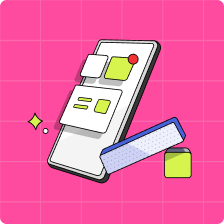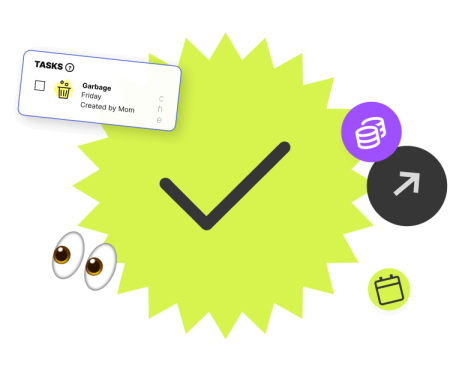Waiting until your child is old enough to score their first credit card before having “the talk” about debt could spell disaster, especially when the bill comes in. Here are some strategies on how to teach your kids about credit cards while they’re still young.
Why should you start talking to your kids about credit cards early?
Financial education should start as early as possible, and parents can introduce the subject as early as at seven or eight-years-old. Instilling sound financial knowledge when kids are younger—and more likely to listen—helps ensure when your kids do become adults, they’re more able to use a credit card wisely.
Beyond turning into the Bank of Mom and Dad for money, there are other compelling reasons to talk to your kids about credit cards while they’re still young. Understanding how credit works and the risks of mismanaging a credit card means your kids are more likely to avoid future financial hardships as young adults.
How to Teach Your Kids About Credit Cards
Credit cards actually have benefits when they’re used effectively. When it comes to teaching your kids about credit cards, the point isn’t to avoid using one, but rather to understand when and how to use them.
1. Explain what a credit card is
Younger children may have heard of credit cards, or have seen you pay with one, but not understand how they work. Many parents have a credit card, so pull it out of your wallet and show them. Explain that a credit card comes with a limit that is set by the financial institution. Help kids understand that a credit card means you’re borrowing money which you’ll have to repay in full each month or be charged interest on top of the amount you borrowed.
Read more about how to explain a credit card to your kids.
2. Help them understand when to use a credit card
Credit cards aren’t good or bad. They are a financial tool—one that could come with perks. Explain to kids that credit cards are can be used to book a hotel, shop online, or make a large purchase that means you avoid carrying around a lot of cash. Teach children that when used responsibly, credit cards also come with benefits, such as extended warranties (like on their latest-and-greatest electronics).

3. Make it clear that it is not their money
In an ideal world, we’d all pay our credit card in full when the bill is due. However, that’s not always possible. It’s important to reiterate that a credit card is essentially a loan given to you by your financial institution. That loan has to be paid back, even if it’s in instalments. This is where you can introduce the concept of interest (and even combine it with a little math!). Annual percentage rate (APR) on credit cards is typically 19.99%. So if you owed $1,000 and only paid $100 a month, it’d cost you almost an additional $103 in interest once the balance is paid in full. Ask your kids: What would you do with that $103 instead?
4. Only buy the things you can afford
When you’re young, a credit card seems to be a magic tool for getting what you want. Help kids learn that you can’t buy everything you want, so instead focus on buying the things that you can afford (and want!). Explain to children that part of handling a credit card responsibly is staying below your limit. Ideally, you want your balance to be 30 per cent of the overall limit as carrying a balance greater than 30 per cent could negatively affect your credit score.
Learn more: How to help kids and teens avoid impulse buying.
5. Understand the consequences of not using credit responsibility
Help kids understand there are real consequences to not using a credit card responsibly, including additional costs in interest, late payment fees, and how it can lead to a damaging their credit score. A poor credit score has long-reaching effects, including higher rates on car loans, mortgages, or even being denied renting a house or apartment. Better to have them grasp the consequences now before they’re moving back into your basement as an adult.
6. Using credit cards responsibly has benefits
On the flip side, using credit cards responsibly leads to many benefits later in life: high credit scores, which translates into not only being offered lower interest rates on loans but receiving approval in the first place. If the idea of taking out a loan feels alien to your teenager, remind them that a good credit score can even be necessary for getting a cell phone account. In addition, they’ll be able to receive some pretty cool perks, including travel rewards, cash back on your purchases, and even free roadside assistance.
7. Give them practice with a Mydoh Smart Cash Card
Before your kids are old enough to apply for their own credit card, give them some real-world experience of managing their money and using plastic. Mydoh is a digital Smart Cash Card and money management app that helps teach kids how to be good with money (while having fun!). Best of all, parents can oversee what their kids are spending their money on.
The bottom line on teaching kids about money
It’s important to start money conversations early. Be transparent about finances, share your successes, and any lessons you may have learned along the way. Encourage your kids to ask questions, and if you don’t know the answers, find out together.
Sign up for Mydoh today and give your kids a real-world experience of earning and spending their own money today.
Download Mydoh today to learn more.
This article offers general information only and is not intended as legal, financial or other professional advice. A professional advisor should be consulted regarding your specific situation. While the information presented is believed to be factual and current, its accuracy is not guaranteed and it should not be regarded as a complete analysis of the subjects discussed. All expressions of opinion reflect the judgment of the author(s) as of the date of publication and are subject to change. No endorsement of any third parties or their advice, opinions, information, products or services is expressly given or implied by Royal Bank of Canada or its affiliates.








